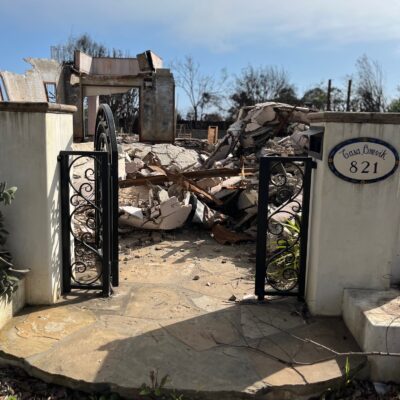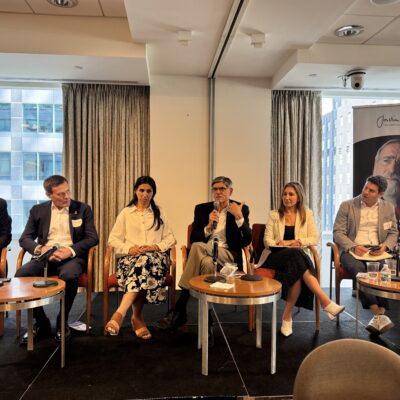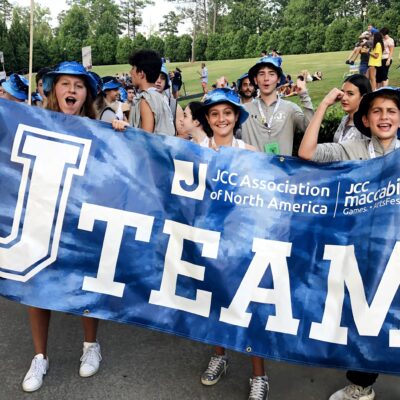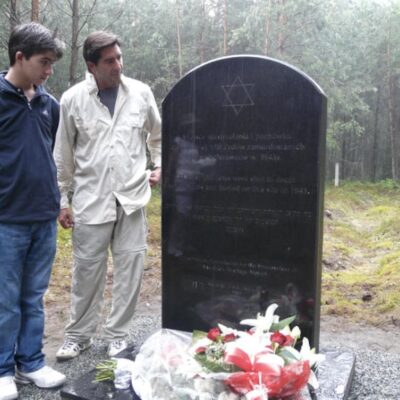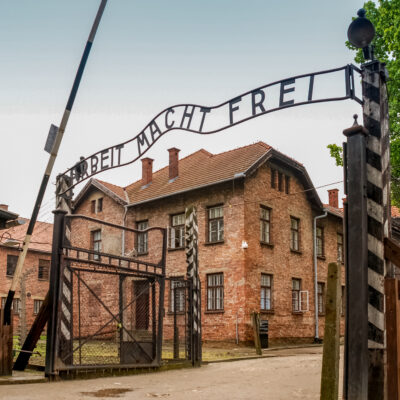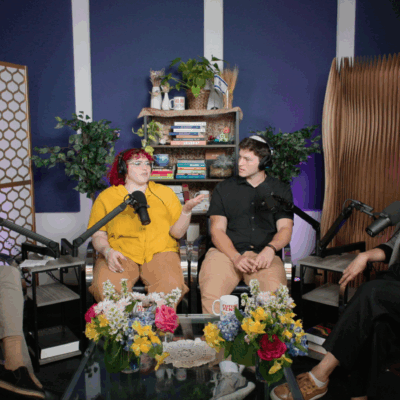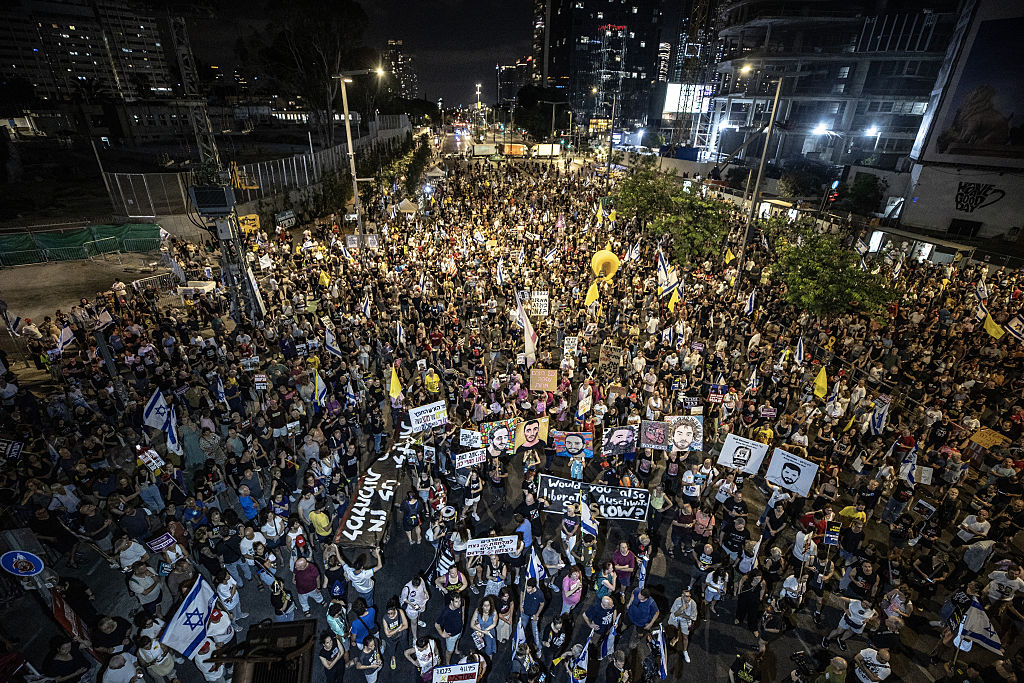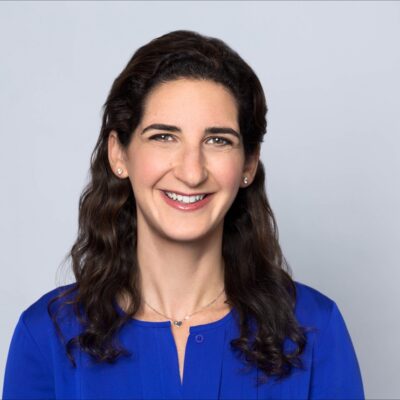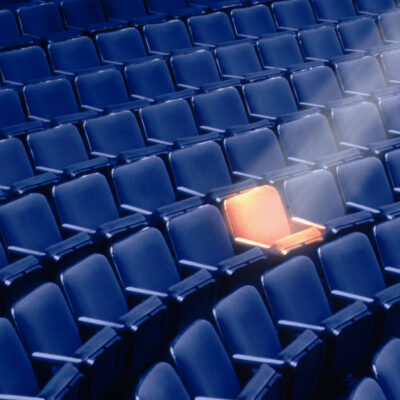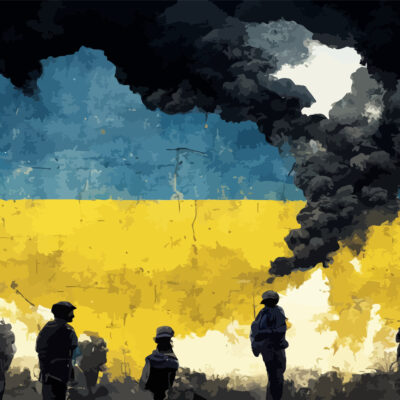GAME ON
After Iran war forces Maccabiah delay, JCC Maccabi Games welcome teens from US delegation
Over 3,000 teens will attend the events in Tucson, Ariz., and Pittsburgh — more than 60% of whom aren’t connected to other Jewish programs or organizations
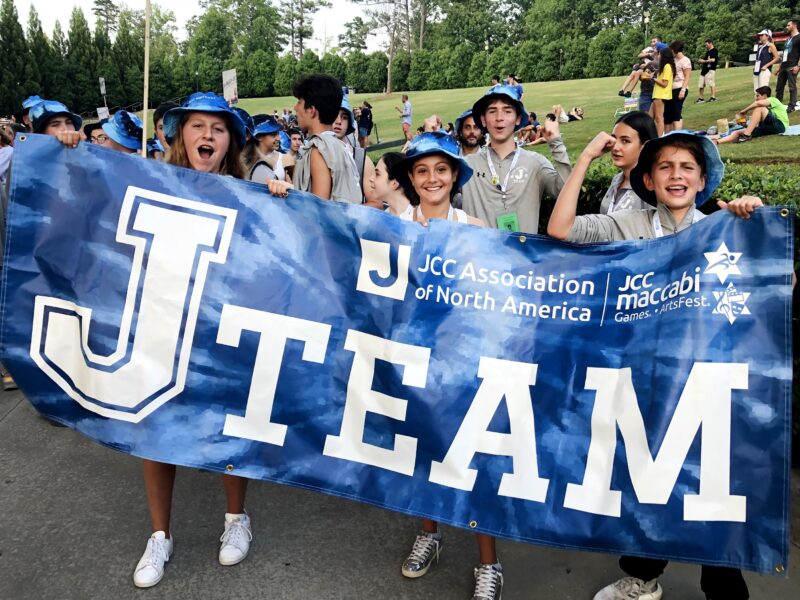
COURTESY/JCC ASSOCIATION
Participants from Atlanta in the 2023 JCC Maccabi Games.
Cooper Lee, a 14-year-old swimmer from San Francisco, was set to be one of the more than 500 Jewish American teen athletes to compete in the 22nd Maccabiah Games this month in Israel. Then, just weeks before the international competition was to kick off, the war in Iran began.
Lee, who was to be part of the USA delegation, saw the writing on the wall. “We were kind of expecting it,” he told eJewishPhilanthropy of the eventual postponement of the Maccabiah Games until next year. “Which is unfortunate.”
It was going to be Lee’s first time in Israel, and he’d crowdfunded almost $10,000 for a nearly monthlong trip. Though disappointed, he knew where to turn.
For the past two years, Lee represented Team San Francisco in the smaller JCC Maccabi Games, which welcomes delegations from Israel, Great Britain, Mexico, Canada and throughout the United States. When the Maccabiah Games were postponed, the head of his delegation made some calls, and Lee was one of 27 teens slipped into the upcoming JCC Maccabi Games well after the March 1 deadline. The Maccabi Games will be held this year in two cities: Tucson, Ariz. (July 27-Aug. 1) and Pittsburgh (Aug. 3-8).
This year’s games were in a unique position to add participants because of a partnership with the University of Pittsburgh, allowing competitors and their families to stay and eat in the campus’ dormitories and dining halls. Another change to the games will be the presence of the Access program, which will allow Jewish teens and young adults with cognitive and developmental disabilities to compete; the former pilot program is now a permanent feature of the Maccabi Games.
“We were very sad about the [postponement of the international] games, but the team felt that it was our mission to get as many kids as possible to have a positive Jewish sports experience this summer, so we did what we could,” Samantha Cohen, the JCC Association of North America’s senior vice president of JCC Maccabi, told eJP.
Both locations are bracing for the sweltering conditions. Arizona temperatures regularly reach over 100 degrees, so shade will be optimized, outdoor competition will be scheduled for mornings and competitors will be mandated to take water breaks. In Pittsburgh, where temperatures skew lower, “part of our preparation is the continuous no rain dance,” Jason Kunzman, president and CEO of the JCC of Greater Pittsburgh, quipped to eJP.
Because demand for the games was so strong, the Pittsburgh games were already in the process of opening spots when the Maccabiah was postponed. The Maccabi Games in Pittsubrgh will be held completely off-site at the University of Pittsburgh, Carnegie Mellon University and other partnering schools and neighborhood parks, allowing the Pittsburgh JCC to continue operations as normal throughout the duration.
Over 3,000 teens will attend across both locations — more than 60% of whom aren’t connected to other Jewish programs or organizations. “For every 10 athletes that we have to say no to because we can’t get enough host families, seven will go without any type of Jewish engagement for the entire year,” Kunzman said.
The inaugural Maccabi Games were held in Memphis, Tenn., in 1982, and the pandemic paused the activities from 2020 to 2021. When the games returned in 2022, they were held in one location, before bumping to two locations the following year. Pre-pandemic, it was common for the games to be held in three communities, and the goal is to return to that model because — even with the campus housing — this year’s games had to turn away hundreds of participants.
The campus model is not meant to replace the community model, where athletes stay with local volunteers who feed them and provide a personal experience, but is meant to be a “part of our portfolio of host models in the future,” Cohen said.
The year’s games are more expensive than in past years due to the increased cost of housing and food, but JCC Maccabi raised over $8 million from donors towards the JCC Maccabi strategic expansion goal, including The Marcus Foundation, Charles and Lynn Schusterman Family Philanthropies, Samueli Foundation, David and Sharon Wax, and Gary and Jerri-Ann Jacobs.
“Priorities one through five are safety and security,” Kunzman said. Security alone, including all technology, is costing nearly $500,000 with “a significant financial contribution” from the Jewish Federation of Greater Pittsburgh, which also provided experts to develop the security plan.
A safe campus means monitoring intruders, but “it also includes making sure there’s no shenanigans happening in and around the dorms,” Kunzman said. “By the way, that’s the more likely scenario [compared to an antisemitic attack]. It’s the kids getting into some challenging situations that we prefer them not to be getting into.”
Even though there aren’t host families, the Pittsburgh community has cultivated other ways to invoke volunteerism, finding over 800 positions for local community members to help, from serving on the massive steering committee to helping teens with community service through the JCC Cares program, which does everything from stuffing school supply kits for school children to visit the elderly.
The Pittsburgh Jewish community is still reeling from the 2018 Tree of Life shooting that left 11 dead, but “The University of Pittsburgh has rolled out the red carpet,” Kunzman said. The goal of campus games is to set “the expectation for what families and these kids should have when they are searching for a university.” At many campus events, Israeli flags will flutter.
“It is possible for there to be an environment where Jewish teens walking on and attending a college campus can feel warm and welcome,” he said.
Because the games are a gateway for many Jews into the larger Jewish community, JCC Maccabi partners with community organizations, often introducing teens to them for the first time. This year, those organizations include Chabad, Hillel and AEPi.
The games are also a way to connect the larger Jewish world to local non-Jewish communities. Todd Rockoff, the president and CEO at Tucson Jewish Community Center, estimates that the games will have over a $5 million economic impact on Tucson, which thrives as a tourist attraction during winters, but stalls out during summers.
The Tucson games will welcome around 25 teens and young adults from America and Israel with cognitive and developmental disabilities who will compete in distinct activities as well as some unified activities.
“The benefit is bilateral,” Rockoff told eJP. “The neurotypical kids have an opportunity to interact with kids with disabilities in a way that enriches them, and the kids with disabilities have an opportunity to do something they never thought might be possible… When we talk about welcoming Jewish kids, it’s really all Jewish kids.”
This year’s games will acknowledge the tragedies of Oct. 7 and the 1972 Summer Olympics, when 11 Israeli athletes were murdered in Munich. The Pittsburgh games will also honor those lost at Tree of Life.
“It’s been very important to us to have as many Israelis as possible participate in this experience, because the mifgash [encounter] experience between Israeli teens and North American youth is extremely important, particularly at this time,” Cohen said.
Thanks to sponsorship from the Seed the Dream Foundation, the largest Israeli delegation ever to attend this year’s JCC Maccabi Games, with 100 athletes and coaches. Many were displaced from the Gaza envelope and northern Israel. Others are from Bat Yam, Ramat Gan and Kiryat Ono, which were devastated by the Iranian missile strikes.
Additional guests appearing at both locations include Israeli French MMA fighter Natan Levy; Israeli Olympian Ori Sasson, who won the bronze medal in judo in the 2016 Rio Games; the “Jewish Jordan,” former pro basketball player Tamir Goodman; and Yarin Ilovich, known as DJ Artifex, who was the last DJ to perform at the Nova Music Festival before the Oct. 7 terror attacks.
“The JCC Maccabi Games are a Jewish peoplehood program,” Rockoff said. “That’s really the goal, to see ourselves as something bigger than ourselves or a local community.”
Lee, the swimmer, ended up refusing his money back from the canceled Maccabiah trip. Instead, he plans to use it towards next year’s games. But summer isn’t over and he’s looking forward to reconnecting with friends from past JCC Maccabbi Games. He also looks forward to meeting new ones.
“There’s a whole spectrum of Jews,” he said. “It’s really interesting to be educated about other people’s perspectives of how some people can be very Orthodox and very Conservative people, and then you can see some people who don’t go to synagogue that much, maybe haven’t had a bar or bat mitzvah.”
The JCC Maccabi Games are “a smaller scale than the Maccabiah Games,” he said, “but it’s still a huge scale.”


